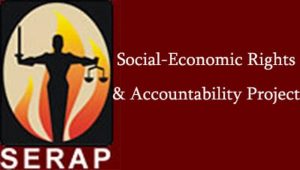SERAP Petitions UN Over Nigerian Senate’s Press Council Bill

SERAP Appeals To UN To Force Senate To Stop The Press Council Bill
The Socio-Economic Rights and Accountability Project (SERAP)has petitioned the United Nations to publicly press the Senate to immediately withdraw the Press Council Bill.
The group said the legislation aims to undermine constitutionally and internationally recognised media freedom in the country.
Deputy Director, Timothy Adewale, said this will undermine the ability of Nigerians to be informed on events and participate in the governance process.
Criminalising media freedom would not only violate the rights of journalists and media practitioners to carry out their legitimate work but undermine the ability of Nigerians and others in the country to be informed on events of critical importance and participate in the governance process.
Adewale said the bill will also escalate the growing threats to the right to freedom of expression, and media independence.
“The bill would escalate the growing threats and attacks on the right to freedom of expression and media freedom and have a powerful chilling effect across the country.”
The organisation also said “The proposed bill by the Senate is a major threat to media independence and diversity in the country and shows lack of understanding of the essential role of independent media in the sustainability of the country’s democratic dispensation. SERAP believes that a free and independent media would facilitate public participation, governmental accountability and improve democratic institutions.”
“The bill would also restrict the free flow of information and ideas, which is one of the most powerful ways of combating corruption and holding public officials, including lawmakers accoun-table,” SERAP said.
Despite strong opposition from media practitioners to the bill, the Senate of Nigeria is pushing hard to accelerate the passage of this obnoxious bill, which has already passed the second reading. SERAP is concerned that if passed into law the bill would contravene Nigeria’s international legal obligations, including under the African Charter on Human and Peoples’ Rights, the International Covenant on Civil and Political Rights and the UN Convention against Corruption to which Nigeria is a state party.


